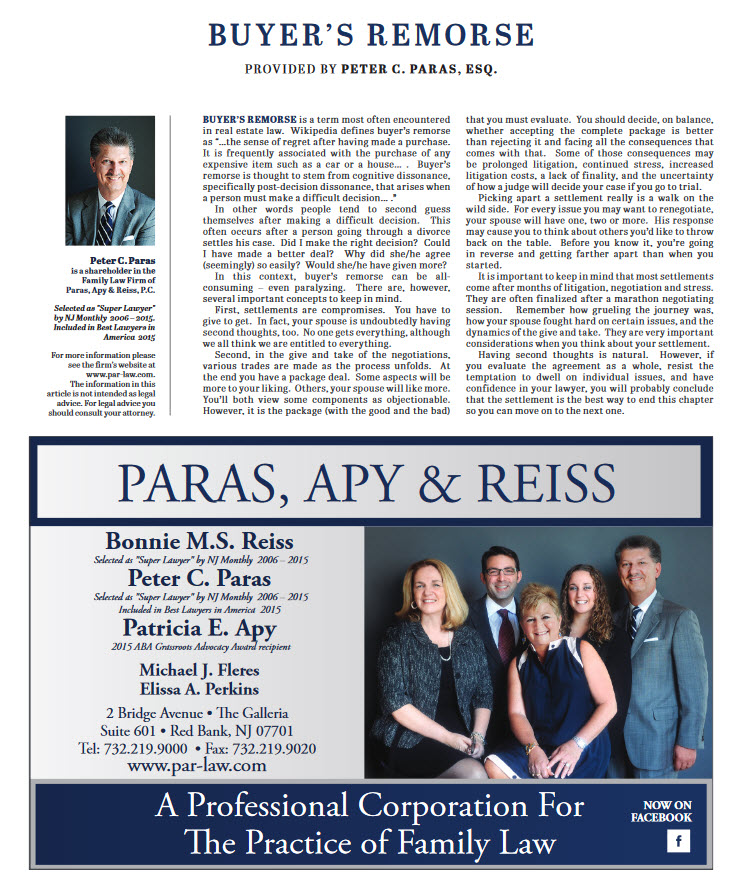In other words people tend to second guess themselves after making a difficult decision. This often occurs after a person going through a divorce settles his case. Did I make the right decision? Could I have made a better deal? Why did she/he agree (seemingly) so easily? Would she/he have given more? In this context, buyer’s remorse can be all-consuming – even paralyzing. There are, however, several important concepts to keep in mind.
First, settlements are compromises. You have to give to get. In fact, your spouse is undoubtedly having second thoughts, too. No one gets everything, although we all think we are entitled to everything.
Second, in the give and take of the negotiations, various trades are made as the process unfolds. At the end you have a package deal. Some aspects will be more to your liking. Others, your spouse will like more. You’ll both view some components as objectionable. However, it is the package (with the good and the bad) that you must evaluate. You should decide, on balance, whether accepting the complete package is better than rejecting it and facing all the consequences that comes with that. Some of those consequences may be prolonged litigation, continued stress, increased litigation costs, a lack of finality, and the uncertainty
of how a judge will decide your case if you go to trial.
Picking apart a settlement really is a walk on the wild side. For every issue you may want to renegotiate, your spouse will have one, two or more. His response may cause you to think about others you’d like to throw back on the table. Before you know it, you’re going in reverse and getting farther apart than when you started.
It is important to keep in mind that most settlements come after months of litigation, negotiation and stress. They are often finalized after a marathon negotiating session. Remember how grueling the journey was, how your spouse fought hard on certain issues, and the dynamics of the give and take. They are very important considerations when you think about your settlement.
Having second thoughts is natural. However, if you evaluate the agreement as a whole, resist the temptation to dwell on individual issues, and have confidence in your law yer, you will probably conclude that the settlement is the best way to end this chapter so you can move on to the next one.

